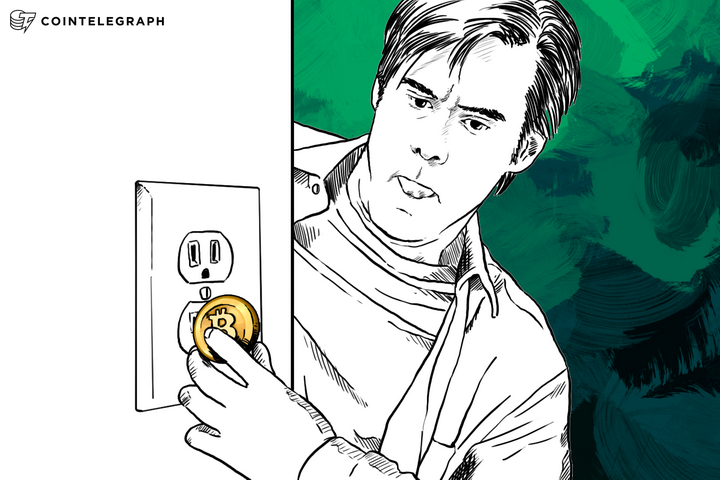[Editor’s Note: Cointelegraph is happy to announce that the following article has been selected as the winner of the FinTech article of the Month Writer’s Competition and the prize of 1 BTC! We have received some great submissions but ‘People are Just Too Stupid to Use Bitcoin Right Now’ by Sam Higgins was by far the most popular article among the contestants. We’d like to thank everyone who took part. Stay tuned for more contests and prize giveaways in the near future at Cointelegraph!]
The biggest obstacle for Bitcoin’s mainstream push is not the technology itself but rather the public’s ignorance of the true nature of money. To fully grasp the advantages of Bitcoin, one must first understand the current financial system and, to some extent, the history of money and banking as a whole.
“Ignorance is always afraid of change.”
- Jawaharlal Nehru
‘Too stupid’
"People are just too stupid to use bitcoin right now,” I overheard someone argue at a bar a few weeks ago as we were discussing the potential of cryptocurrency. “Society’s understanding of where money comes from is the real challenge.”
Sure, this statement is crass and may sound like the premise of a bad joke, but after giving it some thought, I recognized an iota of truth: the public is ignorant of the other advantages offered by a trustless, decentralized, peer-to-peer system of payment because they do not grasp the inherent flaws of the current financial system and, more importantly, how money is created.
The Bitcoin ecosystem is still in its infancy and has received much criticism. We often hear that Bitcoin-related software is still too kludgy, complicated and not “Grandma-friendly.” Then there are the hoops a person must jump through to actually acquire bitcoin, not to mention the media-induced association with dark markets, drugs, and “illegal activity.”
Simply put, unless you are a contrarian or a tech-savvy rebellious teenager, there is little to no incentive for a regular person in the developed world to use Bitcoin compared to the tried and tested method of swiping plastic at the register.
Where Does Money Come From?
When asked, most people can paint you an abstract picture of how money comes into existence, i.e. the government or the central bank “printing cash,” while completely unaware of the for-profit private banking sector. In fact, 97% of all money is created by banks via fractional reserve banking.
Moreover, this ignorance extends far beyond the layman. For example, 71% of British MPs did not know where money comes from in a 2014 poll conducted by Positive Money.
“MPs have no chance of understanding the house price bubble unless they know these basic facts about money,” said Ben Dyson, founder of Positive Money. “The financial crisis was caused by banks that created too much money and lent it recklessly. We’re now in danger of repeating the same mistakes.”

In addition, most people fail to see inflation as a "hidden tax" forcing people to keep working and quickly spend before their cash loses purchasing power. Using a nifty inflation calculator, for example, 1 US dollar in 1913 has the same purchasing power as US$24 today.
Yes, the inflation rate for the past 102 years has been a whopping 2310.5%! In other words, the dollar has lost more than 98% of its value since 1913, the year the Federal Reserve was established.
Falling on deaf ears
Without this knowledge, Bitcoin’s advantages such as decentralization, peer-to-peer payments, open-source protocol, push transactions, the ability to manage your own private keys and “being your own bank” will surely fall on deaf ears.
To understand why a decentralized currency is better, one must first grasp the flaws of centralized currencies. Likewise, why is it better to manage your own private keys rather than give the bank all your personal information, which has a great chance of being stolen by hackers? Wait, what are private keys?
… I think we’re starting to see the problem here.
Meanwhile, sending money to anyone online has already been enabled by the likes of PayPal with MasterCard, Visa, and other legacy firms who are all vying for a cut in this increasingly lucrative online payments market.
But while it’s true that Bitcoin can offer “faster” and “cheaper” transactions, the difference of one or two percent is not significant enough for users to ditch their credit card intermediaries who often sweeten the deal by offering reward points, frequent flyer miles etc.
Bitcoin’s real value
“Fiat” as in fiat currency means money issued by decree. Hence, there is nothing backing the US dollar (since at least 1973) other than faith and perhaps, ultimately, a US-led drone strike. So why do so many people like Paul Krugman call Bitcoin “evil” arguing that it has no intrinsic value? For the same reason that the majority of people believe their government creates money: ignorance and fear of the unknown.
“If anyone says that bitcoin is based on nothing but thin air, that it cannot be a money because it has no real history as a genuine commodity, and whether the person saying this is a novice or a highly trained economist, you need to bring up two central points,” writes CLO of Liberty.me, Jeffrey Tucker. He continues:
“One, bitcoin is not a stand-alone currency but a unit of accounting attached to an innovative payment network. Two, this network and therefore bitcoin only obtained its market value through real-time testing in a market environment.”
In an economy with too-big-to-fail banks, boom and bust cycles, artificial stock bubbles, rampant inflation, and bank account seizures, the advantages of Bitcoin become self-evident to those who understand the insidious nature of a centrally-controlled monetary system.
Editor's note: the above article was partially inspired by the discussion in this reddit thread.
By Sam Higgins



